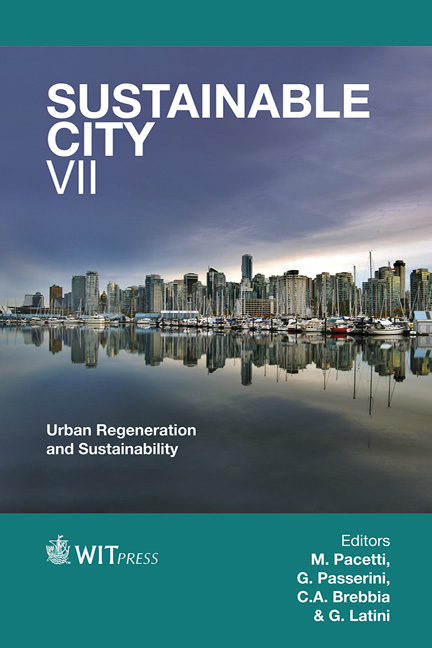Misusing The City Statute In São Paulo: The Nova Luz Urban Renewal Project
Price
Free (open access)
Transaction
Volume
155
Pages
12
Page Range
405 - 416
Published
2012
Size
1,159 kb
Paper DOI
10.2495/SC120341
Copyright
WIT Press
Author(s)
P. Rodrigues Samora
Abstract
Brazil is known for its accomplishments in the field of urban legislation, particularly regarding the 2001 City Statute. São Paulo was a pioneer city in this regard, and the first to integrate instruments from this groundbreaking law into its 2002 Master Plan. As a result, some areas of the city were designated as Zonas Especiais de Interesse Social (ZEIS, or Special Zones of Social Interest), which include some of the city's poorest areas. These vary from informal settlements to neglected but transportation-rich neighborhoods in central districts. Considering social housing as a priority and the social function of the urban land, the ZEIS are in tune with the ideal of a sustainable city. However, ten years after the implementation of the ZEIS’s, the access of the poor population to well-located areas in São Paulo is still deficient. While land and tenure regularization of peripheral, informal settlements designated as ZEIS is now easier than before, the central ZEIS are not being used by the local government to expand social housing in well-located areas. This paper discusses the case of the \“Nova Luz”, an urban renewal project that provides an example of the misuse of the central ZEIS – and to a certain extent, of the City Statute as well. In this project, a ZEIS is considered as a \“reservoir” for the poor, a small island where a few will be allowed to stay while many will be evicted and displaced. Even worse, the ZEIS has been used to mitigate the impacts of a massive public-private redevelopment project and thereby legitimate mass evictions, an issue that has become increasingly critical in the Brazilian economic boom and redevelopment spurred by the 2014 World Cup and the 2016 Olympics. Keywords: urban renewal project, compact city, gentrification, inclusive city, affordable housing, Brazil.
Keywords
urban renewal project, compact city, gentrification, inclusive city, affordable housing, Brazil.





